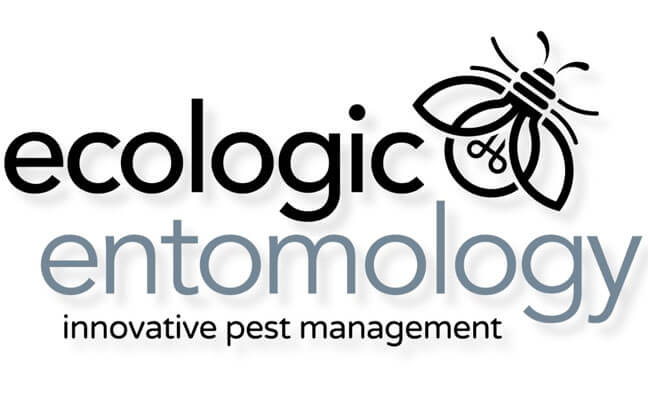In the realm of hospitality and property management, the comfort and satisfaction of guests and residents are of utmost importance. A positive experience for those staying in your property is the cornerstone of success in these industries. However, one common and challenging issue that threatens this success is the presence of bed bugs. The threat of bed bugs is well-known for hotel and property managers – they are not just a nuisance but pose a severe threat to the reputation and operation of any accommodation or residential facility.
Despite this knowledge, it’s surprising that many hotels and multi-unit properties lack a formalized bed bug response plan. The absence of such a plan can turn a single sighting of bed bugs into a complex and damaging issue. A prompt and effective response plan, well-known and executed by your team, is critical in quickly mitigating the problem and preventing it from escalating.
At Ecologic Entomology, highly esteemed for our pest control expertise in Boston’s commercial sector, we understand the importance of a solid response plan. This article will explore the essential steps to help hospitality and property managers create a thorough and effective bed bug response plan. Covering everything from early detection and accurate identification to engaging professional pest management services and implementing post-treatment strategies.
1. Early Detection & Immediate Response
Staff Training for Early Detection:
- Conduct regular training sessions for housekeeping, maintenance, and front desk staff on identifying bed bugs. Many pest control providers offer specialized bed bug identification and management training services. Therefore, it’s advisable to consult with your pest control provider to see if such training services are available, ensuring your staff is well-prepared and informed.
- Provide clear visual guides in staff areas for bed bug identification. Educational guides can be purchased through ___________.
Immediate Response to Sightings:
- If a bed bug is spotted by an employee, they must report it to a designated manager immediately.
- Managers on duty should contact their pest management company as soon as possible. Remember to keep your company’s contact information current and easily accessible to staff and management.
- In the event of a guest report, staff should handle the situation with empathy, offer an immediate room change, and notify management immediately.
2. Inspection & Verification
Initial Room or Unit Inspection:
- A trained staff member should inspect the room or unit immediately. Your pest management company will likely want to thoroughly inspect to confirm pest presence.
- Look for signs of bed bugs, including live bed bugs, small bloodstains on bedding, and dark spots on mattresses or furniture.
Specimen Collection:
- If live bed bugs are found, capture one to provide your pest management professional for inspection.
- Carefully capture the bed bug using clear tape, tweezers, or a small container. If using tweezers, be gentle to avoid crushing the bug.
- If the bed bug is found on bedding or clothing, place the item in a sealable plastic bag to transport the bug.
- Place the captured bed bug in a small, sealable container like a pill bottle or a zip-lock bag. If a hard container is used, line it with a tissue to prevent the bug from being crushed during transport. Ensure the container is securely closed to prevent the bed bug from escaping.
- Label the container with important information such as the date of collection, the location where the bed bug was found (e.g., bedroom, living room), and any other relevant details.
- If multiple specimens are collected, label each one separately to preserve the details of each find.
Documentation:
- Record every detail, including guest complaints, room or unit number, date, time, and the location within the room or unit where bed bugs were found or suspected.
3. Containment & Guest Management:
Isolating Affected Area:
- Quarantine the affected room or unit and adjacent rooms or units until cleared by professionals.
- Remove all bedding and curtains for laundering at high temperatures.
Guest Communication & Compensation:
- Inform the affected guest discreetly, offering a sincere apology.
- Provide options for compensation, such as a free room upgrade, refund, or complimentary services.
4. Professional Pest Management:
Engaging Pest Control Services:
- It’s essential to have a professional pest management company contracted for hotels and multi-unit properties. Keep their contact information up to date and easily accessible to staff.
- A professional will almost always want to inspect the room or unit before treating it. Ensure all instructions are followed upon inspection completion, including any pre-treatment protocols.
Treatment & Follow-Up:
- Your pest management company should treat the affected room or areas within a unit but may also treat adjacent rooms.
- Schedule recurring periodic inspections with your pest management company as ongoing preventative maintenance.
5. Post-Treatment Measures:
Room or Unit Restoration:
- All flat surfaces (e.g., desks, tops of file cabinets, shelves) should be wet wiped using a non-odorous cleaning product. Cleaners containing ammonia or ammonium compounds are not recommended since they have a strong scent and can result in respiratory irritation.
- Carpets/floors should be vacuumed with a HEPA-filtered device. No vacuuming should be conducted within one foot of walls, desks, or cubicles to avoid disturbing the applied pesticide.
- Deep clean the treated room before it is reopened for guest use.
- Replace any discarded items and ensure the room is in impeccable condition.
Monitoring Treated Area:
- Regularly inspect treated rooms or units post-treatment.
- Maintain an observation protocol for neighboring rooms or units.
- Never supplement professional treatment with over-the-counter control products. Store-bought products have been proven to cause bed bugs to scatter, further spreading infestations into other rooms or units.
6. Prevention & Staff Awareness:
Regular Room or Unit Inspections:
- Integrate bed bug checks into routine room or unit inspections.
- Encourage housekeeping staff to report any signs of bed bugs immediately.
Maintenance & Repairs:
- Filling in cracks and gaps in walls, floors, baseboards, and around utility lines can prevent bed bugs from entering and migrating through the building.
- Fix any peeling wallpaper and cracks in plaster to eliminate potential hiding spots for bed bugs.
- Adding door sweeps to the bottom of doors, especially in multi-unit properties, can block bed bugs from moving between rooms or units.
- Ensuring all window screens are intact and free of holes can prevent bed bugs from entering through windows, a common issue in urban settings.
- Encouraging residents and staff to minimize clutter reduces bed bug hiding places and makes identifying and treating infestations easier. This includes proper storage and disposal of items, especially in common areas and storage rooms.
Ongoing Staff Education:
- Regularly update training sessions on bed bug awareness and prevention.
- Ensure newly hired staff undergo proper training as part of their onboarding process.
- Include role-play scenarios for handling guest reports sensitively and efficiently.
8. Managing Public Relations:
Immediate & Transparent Communication:
- Address the issue promptly with stakeholders, including guests, residents, staff, and, if necessary, the public. Honesty and transparency are crucial to maintaining trust. Acknowledge the problem and inform them about the steps to resolve it.
Develop Clear Messaging:
- Prepare a clear, concise statement outlining what has happened, what is being done in response, and the measures to prevent future occurrences. Avoid technical jargon and be empathetic in your messaging.
Designate a Spokesperson:
- Assign a spokesperson to handle all communications related to the bed bug issue. This person should be knowledgeable about the situation and able to convey information calmly and confidently.
Monitor Social Media and Online Platforms:
- Monitor social media and online review platforms for mentions of the bed bug issue. Respond to comments and reviews in a professional and empathetic manner.
Ready to Take Your Pest Control Strategy to the Next Level?
Are you seeking expert guidance on your bed bug control process, from staff training and education to effective control strategies? Ecologic Entomology is here to assist you as a renowned bed bug control and technology leader.
Schedule a no-cost consultation or book staff training and education with owner and certified entomologist Jonathan Boyar, and experience the Ecologic Entomology difference: intelligent pest solutions.

